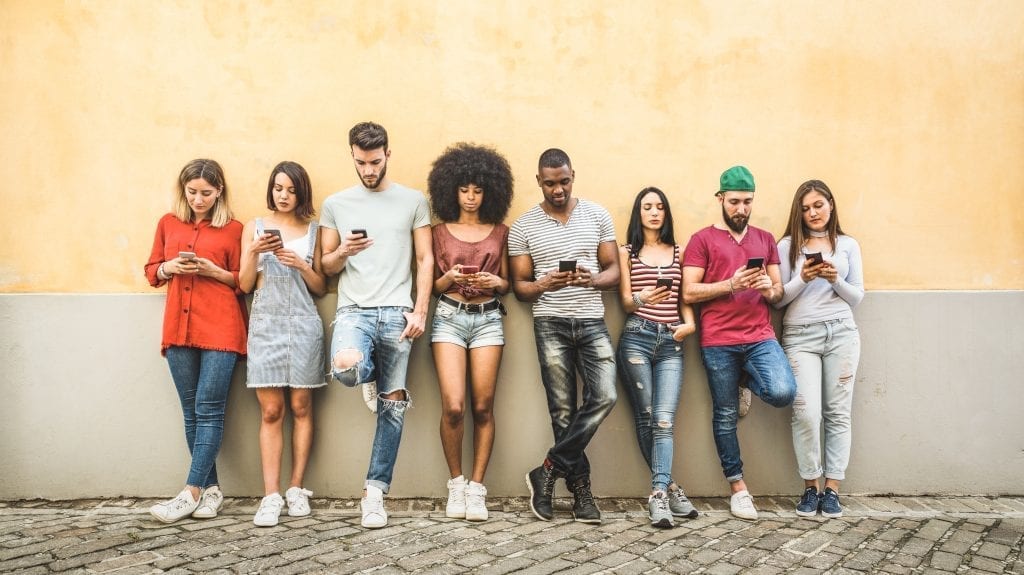Strap on your diapers Baby Boomers and settle your “Woe is me!” cries Millenials. It’s about to get serious.
The Baby Boomer vs. Millenial dispute has been going on for quite some time. Baby Boomers frowning at the disregard of traditions they worked so hard to secure, Millenials infuriated with the irony of Boomers complaining about the effects their mess has made, and Generation X pegged as the quiet middle child, detached and sorta forgotten in the grand scheme of things, watching with a perpetual eye-roll as two large personalities quarrel.
Baby Boomers are baffled with Millenials sudden 360-degree-turn from “the fruits of their labor”. It’s as if the concept of change is foreign to them. Despite the squandering, Millenials and Baby Boomers share commonalities. Both generations are strong and massive forces. Oddly enough, though Boomers turn their nose up at the stench of change, they were the catalyst of it, leaving behind a whelming mark of their transgression. As of 2028, Millenials are expected to be the largest adult generation, since the big bang of Baby Boomers. With quantity comes an explosive turn of culture, norms, and traditions. The unwavering perception of the American Dream is literally being dismantled by the hands of thrifty, hypersensitive, high-sprung hipsters, the Internet serving as their massive hammer.
Putting it in simpler terms: Baby Boomers were the game changers, and now someone else is changing their game. So with that, comes a large rebuttal from Boomers, and even Generation X’s, who are confused by the swift change of culture. And the accusations are relentless. Millennials are viewed as selfish, lazy, weird, and overly sensitive. Some of this may be true. However, whatever side of the perspective you share, it’s fair to say that Millenials have been placed as the scapegoat for the last generations. So, let’s address some common misperceptions of the Millennial.

Millennials Could Care Less About Family Traditions or Values
Millennials are flipping America’s traditions on its head. No longer do they desire to join in the innate tradition of working a 9-to-5, hunkering down, marrying young, buying a house and healthcare, and struggling under the weight of combined debt. Interestingly, Millenials are domineering a unique balance of being both more careful and more risk-takers.
On the careful side, Millennials are gravely concerned about finance. They suffer from the financial traumas of childhood, witnessing their parents suffer through economic disruption, job and pay cuts, and are constantly anticipating another economic breakdown in the immediate future. Are they able to feel the gap? Is their major concern. Seeing their parents work so hard for so long, and still not have enough to retire, has generated high anxiety for them. In fact, Millenials are most likely to be the first generation that might fail to be wealthier than their predecessors.
In turn, Millenials are being more careful with their coins. There’s an increase in students moving back in with their parents after college, a whopping 40% due to financial reasons. Since being the generation suffering under a substantial amount of students loans, according to Statista, 80 % of Millenials admitted that their debt withheld them for buying a home. Millennials are generally buying less and renting more. No longer are they buying houses, cars, accumulating credit card debt, and seeking value in name brands (hence the fall of department stores). Millennials are losing the “buy now, pay later” sentiment. They see less value in cultural structures that have only accumulated unneeded and staggering debt in the long run.
On the risk-taker side, Millenials see no rush into binding contracts of any kind, whether that is in marriage or buying a home. They’re putting off soul-searching, and are aiming more towards living their lives first, seeking self-exploration and traveling. Traditional staples viewed as necessities for Baby Boomers are now just fluff and frills for Millenials. The structure created for survival is now not enough. Instead, Millennials are asking the question: I’m existing, but am I living? They’re ditching the comfort of the American dream for flexibility and freedom.
Millennials Are Too Sensitive
This may be so. Perhaps, one of the biggest shifts Millenials have steered headfirst is the sensitivity of society. Millennials have bred a politically-correct culture that no generation has manifested until now. In fact, this could be the reason for such high-volumes of sensitivity. Millennials inflated-receptiveness comes from previous generations’ lack thereof. With America’s past rich in brutal history and coupled with the lack of accurate teachings, all in history, health, and sex, there’s been, altogether, a void of empathy.
Millennials are really more hyperaware than sensitive. With the rising demand for equality and justice for all parties, making room for everyone is the Millenial slogan. This results in trying to squeeze everyone in a cramped space while attempting to not step on anyone’s shoes. In trying to create room for all, Millenials are becoming super aware of how we all affect one another. They’re becoming aware of their crippling debt, and not fond of settling, can’t see comfort in being the 99% of the 1%. Millennials are the generation that’s finally getting the bittersweet taste of empathy. Though there will always be a bandwagon in any racial or gender insensitivity, that doesn’t take away from the bigger cause. Millennials have witnessed the trickling effects of their parents and grandparents insensitivity. To a degree, their hyper-receptive nature can be seen as a replenishment. For Baby Boomers, this ideal is completely foreign. For the longest, Boomers have implemented and lived in a deeply structured society. Everything was once restricted to tight columns and hierarchy. But now, everyone’s walking out of bounds, doing away with margins in gender, race, careers, and many more, and it’s unsettling for Baby Boomers.
Millennials Are Lazy
The “sluggish” perspective of the everyday Millenial comes from the fact that less of them work nor desire to work 9-to-5. Millennials are starting to unravel the tedious work structure. Is it really necessary, beneficial, effective? With a decrease in sex, and drug use, and an increase in freelancing and self-employment, it’s safe to say Millenials aren’t lazy. Instead, they’re quite ambitious. Taking more creative positions and finding unconventional careers (Instagram Influencer, Videogamer, Vlogger, etc) that didn’t exist just 15 years ago, the Internet has generated a new type of revenue within the work industry.
Though Millennials are the most educated generation, they’re also suffering from an over-saturation within the work industry. A degree is no longer enough to get a job. In turn, they’re focusing in on social branding for more leverage. Another trend is obtaining multiple forms of income (hence the popularity of Uber, Lyft, GrubHub, and so forth) to further fuel their creative outlets. Careers that aren’t considered as “real jobs” are becoming a healthier, and to some degree, more substantial alternative for the restless Millenial. Most importantly, it’s giving them something to lend on for expected economic failures. Millennials want to enjoy life and work, and if there’s a way to do both, Millennials are seeking it out.
According to Odesk, 89% of Millennials prefer to choose when and where they work rather than being in a 9-to-5 position. 45% of Millennials choose workplace flexibility over pay, and 60% of Millennials leave their company in less than three years.
Millennials Are Selfish
Among the many misperceptions of Millenials, being selfish is definitely one of them. To Baby Boomers, Millenials can be seen as ungrateful, demanding more and doing less, and ultimately rebels-without-a-cause. To an extent, this may be so. Being the selfie generation, wrapped up on appearance via Instagram, Facebook, and so forth, it can be easy to assume that Millennials are only caught up in themselves. But with the climate of the culture, social media is becoming more vital than optional. Not only is there an increasing demand for social media presence in the workforce, but its also a necessity to keep up with peers. Millennials aren’t just using their media platforms for pleasure, they’re seeking to inspire others. They struggle with the pressure of “looking” successful and are constantly comparing their lives to their followers. While it may look like pure self-centeredness, Millenials are experiencing the backlash of social media, that’s becoming and more involved in our daily lives.
Despite their social media rep and ambition to explore, Millenials are actually the generation more concerned about their surroundings. Going back to their high-sensitivity, Millenials have tackled a wide range of topics within racism, feminism, mental health, and science, that has not to be debated before. They are more concerned about their health and search for organic alternatives in their diet. Millennials strive to overall create a more receptive environment for their children. They may seek self-value before a family, but some of the most significant conversations and social progressions have started with Millenials.


